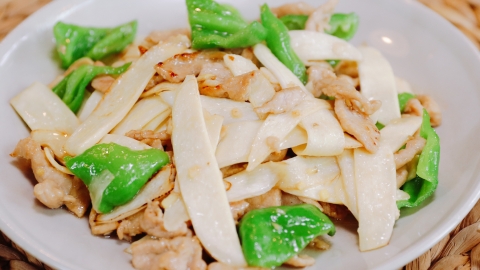Can you eat overnight-stored water bamboo shoots?
Generally speaking, it is usually not recommended to consume leftover water bamboo overnight. The specific reasons are as follows:

When stored overnight, water bamboo provides a suitable environment of temperature and humidity for bacteria, molds, and other microorganisms to multiply rapidly. Even refrigeration cannot completely inhibit microbial growth, especially if not sealed properly, which increases the risk of contamination and may lead to gastrointestinal discomfort symptoms such as abdominal pain and diarrhea after consumption. From a nutritional perspective, vitamins and antioxidant components in water bamboo gradually degrade and diminish after prolonged storage. The plant proteins it contains may also undergo oxidation reactions, reducing nutritional value, while the texture becomes soft and mushy, losing its fresh and tender flavor. Additionally, if leftover water bamboo is not thoroughly reheated during cooking, residual nitrite levels may increase. Long-term or excessive consumption poses health risks. Therefore, from both food safety and nutrient retention standpoints, consuming leftover water bamboo overnight is not recommended.
If it is necessary to consume leftovers, ensure the food is thoroughly reheated and stored sealed and refrigerated, with the storage time minimized as much as possible. Developing the habit of preparing small portions and eating freshly cooked meals will better ensure dietary health and safety.





